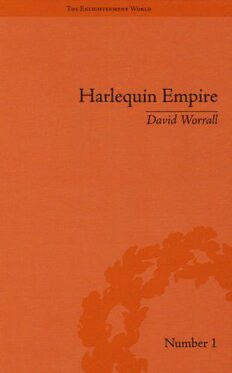
Harlequin Empire: Race, Ethnicity and the Drama of the Popular Enlightenment PDF
273 Pages·2007·2.668 MB·English
Most books are stored in the elastic cloud where traffic is expensive. For this reason, we have a limit on daily download.
Preview Harlequin Empire: Race, Ethnicity and the Drama of the Popular Enlightenment
Description:
David Worrall explores the presentation of foreign cultures and ethnicities on the popular British stage from 1750 to 1840. Under the 1737 Licensing Act, Covent Garden, Dury Lane and regional Theatres Royal held a monopoly on the dramatic canon. Excluded from polite dramatic discourse, non-patent theatres produced harlequinades, melodrama, pantomimes and spectacles. Worrall argues that this illegitimate stage was the site for a plebeian Enlightenment. Discussions about natural and civil rights, voyage and discovery, and Britain's relationship with other cultures were relentlessly enacted. Romantic period drama is a growing field for study. Worrall combines thorough historical analysis with an enjoyment of the vitality and diversity of the works discussed. This publication is printed on acid-free paper that conforms to the American National Standards for the Permanence of Paper for Printed Library Materials.
See more
The list of books you might like
Most books are stored in the elastic cloud where traffic is expensive. For this reason, we have a limit on daily download.
